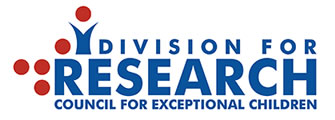
Parents often say they want to have happy and healthy children who will someday be good members of society. When children make mistakes, parents often feel disciplining their child is the way of teaching children how to make good choices. What are good methods? Since discipline is intended to teach and instruct, positive discipline can achieve this goal. Use of these strategies along with building positive parent-child interaction and effective communication are parts of the parenting puzzle. Below are tips for happy parenting.
Special Time
Enjoy being with your child. Try to spend 5 to 10 minutes of individual time with your child each day. Examples of special time include throwing a Frisbee, cooking, coloring/drawing, and building with blocks. The play should consist of toys/activities that do not pull for aggression, result in a winner or a loser, and can be done within the time limit. Let your child choose the activity as long as it fits what works as special time.
During special time, use specific praise to tell the child what he/she is doing well, such as “I like how carefully you’re coloring the rainbow.” You can act like a sports broadcaster by describing your child’s play with enthusiasm, such as saying “he shoots, he scores!” Remember that this is a special time for you and your child to be together.
Use Praise Liberally
Children’s self-esteem is improved through praise and encouragement. You should praise your child often and immediately. Be specific about what your child is doing well. An example of specific praise is “You washed your hands before dinner. Way to go!” This is more effective than “thank you” or “nice job” because the child knows what the praise is specifically for. Children tend to respond better to parents praising the process (what they did to do the task) rather than the product (finished homework). While your child is doing his/her homework you can praise him/her by saying “You double checked your math. Nice work!”
Emotion Coaching
Emotion coaching can be used to build children’s emotion vocabulary and to encourage labeling of emotions. For example, when your child is frowning, you can say “It looks like you’re sad because your friend can’t come over and play.” Parents should coach children to stay calm, patient, and to use basic coping skills such as taking deep breaths, counting to 10, and taking a brief calm down break. For example, parents can coach children by stating, “You look mad because I said no, but I’m proud of you for staying calm and trying to identify other ways to see your friend.” Parents can also provide emotion coaching by labeling their own emotions and modeling positive coping.
Model for children how to engage in positive self-talk such as “I can do this” and “Stay calm; I’m almost done.” When children are struggling with specific behaviors, praise the positive opposite behavior, which is the behavior you want. Rather than saying “stop running,” praise the positive opposite by saying, “I love when you use your walking feet!”
Effective Commands
Commands should be brief, presented one step at a time, and stated positively. Sometimes commands can be confusing or overwhelming, such as “you need to go and clean your messy room because it is so cluttered we can’t walk through it.” Instead, use fewer words and provide steps, such as “Step one: make your bed. Step two: pick up your clothes. Step three: put your books in the basket.” You can give the steps one at a time for younger children, and praise after each step. Be positive by eliminating negative words such as “messy”. Commands should be given as statements rather than asked. Examples include “first finish your homework then you can go outside,” “walk please,” and “walk next to me.”
Communication/Problem Solving
Parents can assist their children in being able to identify problems, possible options, and evaluating whether the appropriate option was chosen. Parents should avoid giving lectures and making negative judgments. It is important to validate the child’s feelings and help him/her engage in perspective-taking. As an example you can state, “I see you’re upset that your friend does not want to play right now. Maybe you can ask when she can play later.” Children often model the problem solving skills of their parents. Therefore, you should discuss how you solve problems, negotiate differences, and make compromises. Pointing out how characters in books and on television solve problems can be helpful with asking questions such as “What can happen next? How would this help?” Role play with dolls or action figures to practice these skills.
Social Coaching
You can coach and encourage children’s social skills such as using manners, sharing, being respectful of ideas, waiting, asking, taking turns, and offering help. At home, use social coaching during mealtimes, games, completing chores, and going to the store. Parents can observe and coach their younger children’s playdates and interactions with friends. Specific praise can be helpful, such as, “I’m so proud that you took turns and let your friend play with your video game.” With older children, timing of the praise is important. Parents can note how the child did well (“Comforting your team when you lost was inspiring”), but tell them later and not in front of their friends.
Positive parenting skills take time to learn. Keep trying and remember to praise your own efforts!
Resources
https://infoaboutkids.org/blog/discipline-shouldnt-be-punishing-for-the-child-or-the-parent.
Proper citation link for this blog post:Burkhart, K. (July 15, 2020). Tips for Parenting Happy Children. https://infoaboutkids.org/blog/tips-for-parenting-happy-children/
















